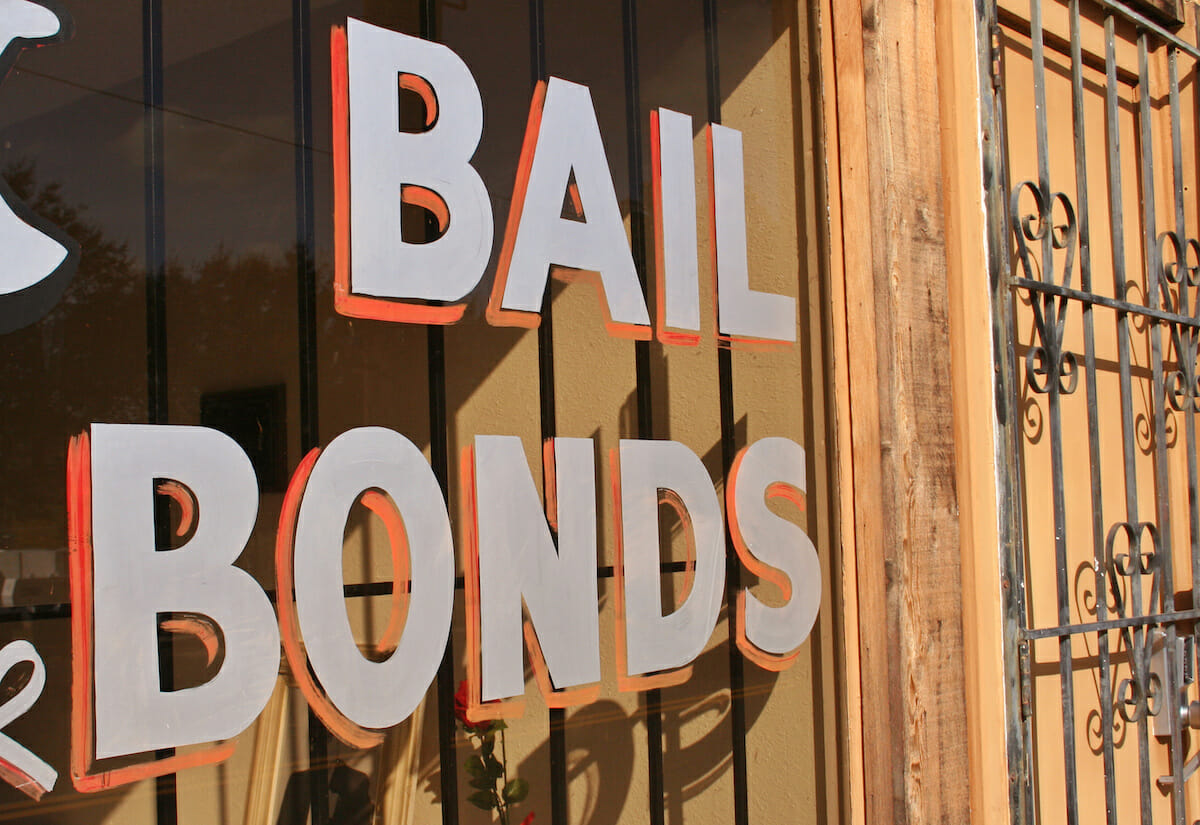Recognizing the Process of Securing a Bail Bond: What You Need to Know
Protecting a bail bond can be an intricate procedure. It entails understanding various facets, from the types of bonds available to the connected prices. Individuals frequently forget essential details that can influence their circumstance. The steps to acquire a bail bond call for careful consideration and understanding of duties. As the procedure unfolds, critical choices must be made that might influence the end result greatly. What should one anticipate when traversing this challenging landscape?
What Is a Bail Bond?
A bail bond is an economic agreement that enables an apprehended person to be released from safekeeping while awaiting trial. This arrangement involves a 3rd party, generally a bondsman, who assures the court that the person will certainly return for their scheduled court appearances. For this solution, the Bail bondsman generally bills a non-refundable fee, often a percentage of the overall Bail amount.
Bail bonds offer a crucial function in the lawful system, offering a mechanism for defendants to maintain their flexibility throughout the pre-trial phase. This can help them get ready for their defense better. The Bail amount is figured out by the court based upon various variables, consisting of the extent of the violation, the defendant's criminal background, and the threat of trip. Ultimately, a bail bond represents a commitment to promote lawful obligations while allowing individuals the chance to proceed their lives until their court day.
How Bail Bonds Job
Bail bonds run through a straightforward process that entails numerous essential actions. An accused or their depictive contacts a bail bond representative after an arrest. The agent examines the situation, including the Bail amount established by the court and the defendant's background. As soon as a choice is made, the agent commonly calls for a non-refundable fee, generally a portion of the complete Bail amount, usually varying from 10% to 15%.
After the fee is paid, the representative safeguards the Bail by authorizing an agreement with the court, guaranteeing that the offender stands for all scheduled court days. If the defendant fails to appear, the bail bond representative is accountable for the full Bail amount, leading the representative to look for the accused. Throughout this process, the bail bond representative plays a necessary role in promoting the release of the offender while taking care of the connected monetary dangers.
Sorts Of Bail Bonds
Recognizing the different sorts of Bail bonds is very important for defendants and their family members as they browse the lawful system. There are a number of typical types of Bail bonds available, each serving a details function.
The most prevalent is the guaranty bond, which includes a Bail bondsman guaranteeing the complete Bail quantity for a charge. One more kind is the cash bond, where the defendant or their household pays the full Bail quantity in money straight to the court.
Building bonds permit individuals to make use of realty as security for the Bail quantity. Additionally, federal bonds specify to federal situations, usually requiring a higher premium and more stringent problems.
Immigration bonds are made use of in situations worrying immigration infractions. Each kind of bond has unique procedures and effects, making it vital for those involved to comprehend their alternatives thoroughly.
The Prices Associated With Protecting a Bail Bond
Securing a bail bond requires numerous costs that can significantly impact an accused's financial resources. The major expenditure is the premium, typically ranging from 10% to 15% of the complete Bail amount set by the court. This costs is non-refundable, despite the case result, representing the bail bond agent's fee for their services. Added expenses might include management fees, which some agents impose for handling documentation, and collateral requirements, where the accused may require to supply possessions to secure the bond. In instances including greater Bail amounts, the demand for collateral ends up being more noticable. bail bonds. Defendants must be mindful of possible expenses related to missed court days, which can lead to additional monetary fines. Comprehending these prices is necessary for defendants and their family members, as they can considerably affect the financial problem associated with protecting a bail bond
The Process of Obtaining a Bail Bond
The process of obtaining a bail bond involves a collection of structured steps that start with the submission of an application. Applicants need to also take into consideration numerous payment and security choices that might be called for by the bail bond company. Comprehending these parts is crucial for navigating with the bail bond system successfully.
Application Entry Tips
Steering the application entry steps for getting a bail bond can be straightforward when people are well-informed. The preliminary action entails picking a respectable bail bond company, which commonly calls for research and referrals. When a company is chosen, the applicant should finish a bail bond application, providing crucial information such as the defendant's information, fees, and Bail surety bail quantity. Next off, the applicant may require to existing identification and any appropriate paperwork to support the application. After submitting the application, the bail bond company will certainly examine the details and analyze the danger involved. If accepted, a representative will lay out the terms before finalizing the contract. This procedure, while methodical, can differ somewhat depending upon the Bail and the jurisdiction bond firm.

Repayment and Security Choices
When acquiring a bail bond, recognizing repayment and security choices is essential, as these variables find this can considerably influence the general cost and regards to the contract. Typically, bail bond firms call for a non-refundable fee, normally a portion of the total Bail quantity, which acts as their profit. Some business may use adaptable settlement plans, enabling clients to pay in installments. Additionally, collateral can be necessary to protect the bond, which might include assets like residential or commercial property, automobiles, or other prized possessions. The type and worth of security can affect the bond's approval and terms. Customers should very carefully review their financial scenario and choices to assure they select a remedy that lines up with their budget plan and circumstances.
Responsibilities of the Indemnitor
Steering through the complexities of Bail bonds requires a clear understanding of the duties of the indemnitor. The indemnitor, commonly a loved one or pal of the accused, plays a substantial duty in the Bail procedure. This specific concurs to presume financial liability, making certain that the Bail quantity is paid if the accused stops working to show up in court. It is necessary for the indemnitor to maintain communication with the bail bond representative throughout the process, offering any kind of required information and updates concerning the offender's scenario.
In addition, the indemnitor should protect security, which might consist of building you can try these out or valuables, to back the bail bond. This security safeguards the bail bond firm against prospective losses - bail bonds. Ought to the defendant fail to adhere to court requireds, the indemnitor encounters the danger of losing their security and might be held liable for the entire Bail quantity. Consequently, recognizing these duties is essential for the indemnitor's financial stability

Common Myths About Bail Bonds
Lots of people nurture misunderstandings about Bail bonds, which can complicate their understanding of the Bail procedure. One prevalent myth is that Bail bonds are a form of payment that guarantees an offender's launch. Actually, they are a warranty to the court that the offender will certainly stand for their set up hearings. An additional typical belief is that only rich people can pay for Bail. Nonetheless, bondsman typically bill a portion of the complete Bail quantity, making it accessible to a more comprehensive series of people. In addition, some people think that Bail is refundable. While the premium paid to the Bail bondsman is not refundable, the Bail amount itself might be returned upon the completion of the situation, provided the offender meets all court needs. Resolving these myths is essential for individuals passing through the complexities of the Bail system and guaranteeing they make educated decisions.
Regularly Asked Concerns
Can I Safeguard a Bail Bond for Someone in An Additional State?
Safeguarding a bail bond for a person in an additional state is feasible, but it commonly needs dealing with a Bail bondsman accredited in that state - bail bonds. Each territory has details laws that should be adhered to throughout this process
What Occurs if the Defendant Skips Bail?
A warrant is usually issued for their apprehension if a defendant avoids Bail. The Bail bondsman may additionally seek healing efforts, which could involve working with bounty seekers to nab the person and locate.
Are Bail Bondsmen Managed by the Government?
Bail bondsmen are undoubtedly managed by federal government authorities. Laws vary by state, but they commonly call for licensing, adherence to financial practices, and conformity with regulations to ensure fair therapy of defendants and their family members.
Can I Utilize Collateral Other Than Money?
Collateral besides cash can typically be utilized for Bail bonds, depending on the Bail bondsman's policies. Common alternatives include home, automobiles, or various other valuable possessions, which need to generally be appraised and set.
What Is the Duty of a Co-Signer in a Bail Bond?
The function of a co-signer in a bail bond is to ensure payment if the defendant falls short to show up in court. This individual accepts financial obligation, guaranteeing that the bail bond contract is supported and enforceable.
If the defendant falls short to appear, the bail bond representative is liable for the complete Bail quantity, leading the agent to look for out the accused. As soon as a company is selected, the applicant needs to finish a bail bond application, offering vital details such as the accused's information, fees, and Bail amount. Normally, bail bond firms call for a non-refundable fee, normally a portion of the overall Bail amount, which offers as their profit. Several individuals harbor mistaken beliefs about Bail bonds, which can complicate their understanding of the Bail process. Security other than cash can typically be utilized for Bail bonds, depending on the Bail bondsman's plans.